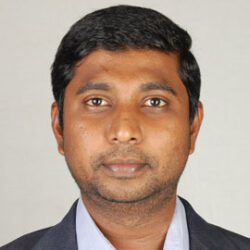- Instructor: Prof. Rajanikanth
- Lectures: 11
- Students: 1
- Duration: 10 weeks

The Internet-of-Things(IoT) defined by European Research Cluster(IERC) on IoT as “A dynamic global network infrastructure with self-configuring capabilities based on standard and interoperable communication protocols where physical and virtual “things” have identities, physical attributes, and virtual personalities and use intelligent interfaces, and are seamlessly integrated into the information network.”
Major players in information and communication technology position themselves in IoT and IoE (Internet of Everything). Device manufactures and Telecom operators anticipate a new business segment towards a wider adoption in IoT. As the internet of things continues to develop further potential is estimated with combination and related technology approach and concepts such as cloud computing, future internet and big data. The overall challenge is to extend the current IoT into dynamically configured web of platforms for connected devices, objects, smart environments, services and persons.
The four IoT components which enable unbroken communication:
-
- Hardware – made up of sensors, actuators and Low power wireless communication
- Gateway/Fog for computing the collected date before transmitting the same to the cloud for analytics
- Middleware – on demand storage and computing tools for data analytics
- Presentation – novel easy to understand visualization and interpretation tools which can be widely accessed on different platforms and which can be designed for different applications.
Program Curriculum
-
- Embedded C
- Arduino
- Raspberry PI
- Kernel/RTOS Concepts
- Socket programming
- MQTT,CoAP,XMPP,HTTP,REST API etc
- Wi-Fi,Zigbee, Zwave etc
- Hands-on working with GPIOs, Analog I/Os, Memory usage9
- Micro controller peripherals usage – Timers, Counters, Interrupts and its sources
- Communication protocols I – UART, SPI, I2C, CAN

